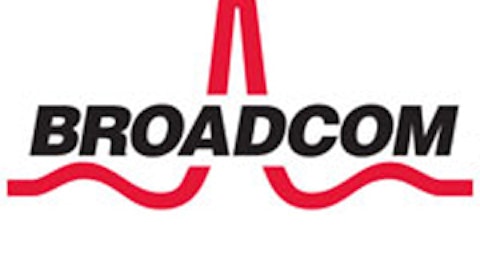Transocean LTD (NYSE:RIG)’s stock actually initially recovered after the Deepwater Horizon disaster, nearly reaching its pre-spill levels in the first quarter of 2011. However, the stock is down 32% in the last two years as the S&P 500 has risen over 10%; we think this is partly due to poor investor sentiment from Deepwater Horizon, partly due to financial obligations from the disaster, but primarily due to actually poorer business conditions. The stock is correlated to oil prices, since higher oil prices make offshore drilling more economical (it is considerably more expensive to drill offshore than onshore) and as a contract driller- particularly in deepwater- Transocean is tied to drilling activity.
Now reports are coming in, generally from the company itself, that billionaire activist investor Carl Icahn has bought close to 2% of the outstanding shares and may move up to a 3% stake. At its current price, Transocean’s market capitalization is $20 billion; by our math, that would make the driller one of his 10 largest stock holdings. Find more of Icahn’s favorite stocks. This is a big move for Icahn since he hadn’t owned any shares at all at the end of September, according to his 13F filing.

Transocean’s revenue was up 23% in the third quarter of 2012 compared to the same period in the previous year. Analyst expectations are for $4.83 per share in earnings this year, which would result in a 2013 earnings multiple of 11. The Street also has high expectations for the following several years, with Transocean’s five-year PEG ratio being 0.5. Note that this means that the company could fall short of analyst consensus and still prove a good value at the current price as long as it experiences some earnings growth. We would be worried, however, that the glut in oil due to onshore production (including from shale and other unconventional sources) will keep oil prices from rising very much, and so keep offshore activity cool for at least the next few years. If investors are interested in following Icahn, and are attracted by the bullish sell-side, that is a point they should look into before making a decision.
Transocean’s peers also have low P/E multiples:
Other drillers include SeaDrill Ltd (NYSE:SDRL), ENSCO PLC (NYSE:ESV), and Noble Corporation (NYSE:NE). Analysts are similarly bullish on these companies: Ensco and Noble actually trade at discounts to Transocean in terms of their 2013 earnings, which clock in at a P/E multiple of 9 in each case. Seadrill trades at 18 times trailing earnings, but its earnings were up enormously in Q3 2011 versus a year earlier and so we can understand why it is priced at a 2013 P/E of 12. SeaDrill and Ensco also boast PEG ratios in the same range as Transocean’s. The company is something of a market leader and does have particularly strong deepwater capabilities, but it doesn’t seem to be that cheap compared to its peers and of course Transocean might not be completely through with Deepwater Horizon issues. We can also compare the company to Petroleo Brasileiro Petrobras SA (NYSE:PBR); as an integrated Brazilian oil and gas company, Petrobras does quite a bit of drilling and oil production from deepwater and “ultra-deepwater” sources. After a 31% decline in price over the last year, the stock is valued at 8 times expected 2013 earnings, again a lower level than where Transocean trades.
At first glance, this doesn’t look like a particularly good move by Icahn. Transocean isn’t priced particularly low compared to its peers. In addition, while the industry as a whole is undervalued in terms of analyst estimates, and might prove to be a good source of value ideas (though even in that case Transocean doesn’t particularly stand out), taking a position in an offshore driller is dependent on oil prices and it’s possible that supply will remain high for the next few years.
Disclosure: I own no shares of any stocks mentioned in this article.





